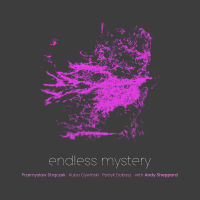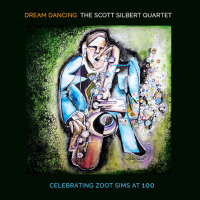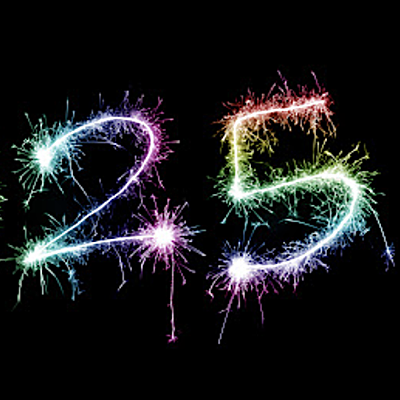Home » Jazz Articles » Marcus Strickland
Jazz Articles about Marcus Strickland
Marcus Strickland Twi-Life Group: Open Reel Deck

by AAJ Italy Staff
All’età di undici anni, Marcus Strickland aveva già le idee chiare: imparare il sax alto e poi il tenore a forza di imitare gli assolo di Charlie Parker. Detto fatto e con il suo gemello identico, E.J., non avevano altro da fare che sferrare un attacco al mondo assonnato del jazz tradizionale. In realtà, Marcus ed E.J., un’educazione musicale a 360 gradi l’avevano già ampiamente assimilata. E da Jimi Hendrix a Stevie Wonder, John Coltrane e Dewey Redman, l’attitudine verso ...
Continue ReadingJimmy Greene: Gifts and Givers

by Joel Roberts
It's probably time to cast aside labels like “up-and-coming" and “rising star" when describing Jimmy Greene. As Gifts and Givers makes clear, the Connecticut-born tenor saxophonist has definitely arrived. An inventive, technically-advanced mainstreamer, Greene made his mark in the bands of Horace Silver, Tom Harrell and Harry Connick Jr., as well as with younger studs like Jason Lindner and Avishai Cohen. On his fifth effort as a leader, he's paired with another young tenor titan, Marcus Strickland. ...
Continue ReadingDave Douglas & Keystone: Moonshine
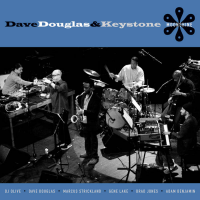
by John Kelman
It's unlikely that Dave Douglas expected the Grammy-nominated Keystone (Greenleaf Music, 2005) to turn into an ongoing project, but as a parallel to his quintet of the past half decade, the trumpeter has forged a distinct entity with the group he now calls Keystone. This sextet shares some commonality with the quintet responsible for Meaning and Mystery (Greenleaf, 2006), but there are just as many differences, if not more. Moonshine affirms that Keystone is a band with a very different ...
Continue ReadingMarcus Strickland: Open Reel Deck

by Mark F. Turner
In an All About Jazz.com article titled “What the #%! Happened to Black Popular Music?," the question was articulated on the current state of African American popular music with insights on its past, present, and future. Whether you're nostalgic and miss the sounds of Motown or have a love/hate relationship with the current music scene, the debate will undoubtedly continue. But jazz saxophonist Marcus Strickland could unknowingly be answering part of the question on Open Reel Deck .
Continue ReadingMarcus Strickland: Twi-Life
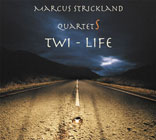
by Budd Kopman
Twi-Life, an impressively packaged double album featuring two different bands headed by Marcus Strickland, is the initial release of Strickland's own label, Strick Muzik. The Marcus Strickland quartet plays on disc one, where the reedist is backed by pianist Robert Glasper, bassist Vincente Archer and his brother, E. J. Strickland, on drums. Starting the disc with Wayne Shorter's “Oriental Folk Song (from the 1964 Blue Note record Night Dreamer) really sets the tone for the rest of ...
Continue ReadingMarcus Strickland Quartets: Twi-Life

by John Kelman
Twi-Life, Marcus Strickland's third album and the first for his newly created Strick Muzik imprint, offers a glimpse at two aspects of the saxophonist's ever-widening range. The first disc is a relatively straight-ahead date with his quartet featuring pianist Robert Glasper and bassist Vicente Archer, while the second introduces his Twi-Life group with bassist Brad Jones and guitarist Lage Lund. Both quartets feature Strickland's twin brother EJ on drums--and, like other noteworthy twins such as Nels and Alex Cline or ...
Continue ReadingDave Douglas: Keystone Live in Sweden
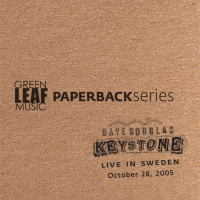
by John Kelman
In the early days of silent film, scores were played live, most often by a single musician--simplifying the response to the on-screen activities. In recent years artists like guitarist Bill Frisell and clarinetist Louis Sclavis have upped the ante by combining composed music with improvisation on silent film scores for small ensembles, making the coordination of sight and sound much more challenging.
Trumpeter Dave Douglas' Keystone (Greenleaf, 2005) is another contemporary entry, a two-disc release including a DVD of the ...
Continue Reading

